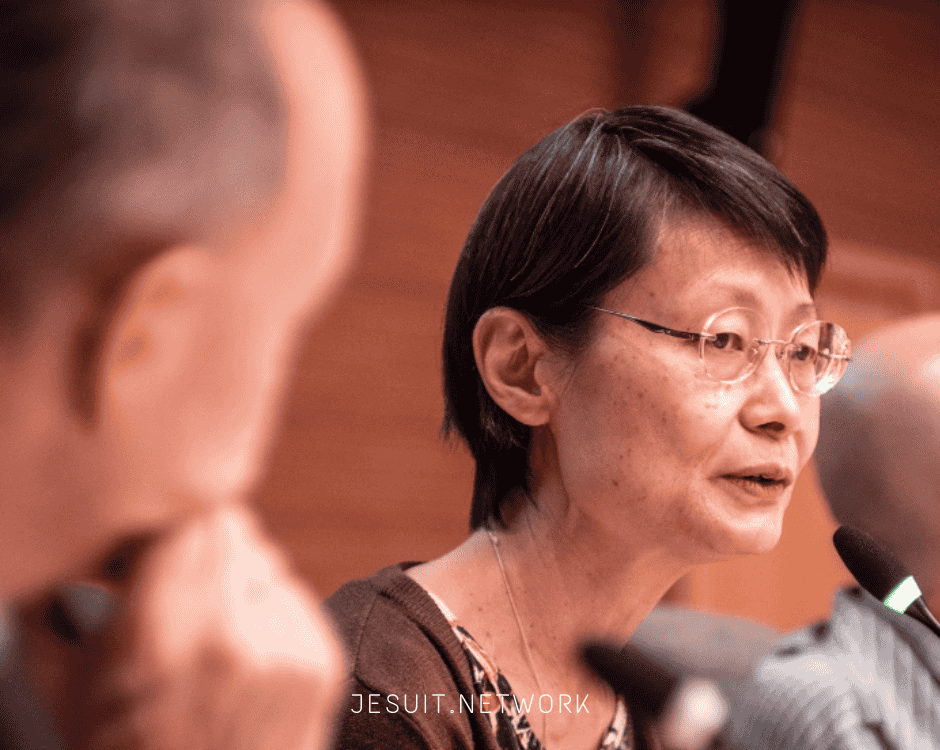Este sitio web utiliza cookies para que podamos ofrecerle la mejor experiencia de usuario posible. La información sobre cookies se almacena en su navegador y realiza funciones como reconocerle cuando vuelve a nuestro sitio web y ayudar a nuestro equipo a comprender qué secciones del sitio web le resultan más interesantes y útiles.
The Pope, Leadership and dusty shoes
This story is about our current Pope, and it is a story about how one begins to tackle a difficult challenge, like activating the Jesuit network more fully. How do you start? You do something. Find some need and help to answer it. Anywhere. In your own school, in your own city, in your own alumni group.
That’s the strategy I learned from the Pope. I was privileged to communicate with some of the Jesuit seminarians who were under him in Argentina, and one of the impressions I took away was Fr. Bergoglio’s proactive approach and willingness to experiment. One of them told me that Bergoglio used to say that there are too many things that need doing to be sitting around doing nothing.
Another one told me that while Fr. Bergoglio was rector of the Jesuit seminary, the Colegio Máximo, he was asked at the same time to take over a new parish, in a very poor district, and he asked some seminarians to help him. They sketched out a little map of the district on a piece of paper, they divided up the zones, and each seminarian was given a zone. [pullquote align=»left or right»] If they had dusty shoes, he knew that they had been doing something; if they had clean shoes, he knew they had not[/pullquote]To do what? Go there. Meet people. “meternos en el barrio y caminarlo”, “no peinar ovejas sino la de salir al encuentro de todas ellas”, “visitar a los más pobres y atender sus necesidades”. In other words, walk the barrio, don’t skim the cream (as we would say in English), meet everyone…. Go to the poorest and attend to their needs. When they came home, Fr. Bergoglio used to look at their shoes. If they had dusty shoes, he knew that they had been doing something; if they had clean shoes, he knew they had not.
To speak in the language of the 21st century, Fr. Bergoglio was teaching his community to do what our Jesuit network has always done well: we find a need, and then we create an “app” for it. But our apps are not downloaded onto cellphones; they are uploaded into people’s lives because they address real human needs.
Our spiritual father St. Ignatius saw that people needed help to be able to make important decisions in life, so he created the app that he called the Spiritual Exercises. It is still in use after 500 years: let’s see if Facebook is still here in 500 years.
And the first Jesuit generation also figured out that the world could benefit from a much more rigorous, ordered, widely available system of secondary education, so they invented the app that we now call a high school, a colegio.
In our own lifetimes, the Jesuit network has created some wonderful apps. Fr. Velaz created one famous app. He worked as rector of Colegio San José in Merida in Venezuela, and, his biography says, “felt a calling for greatness in service, a yearning for boldness and risk taking.” So he started a network of rural schools along the plains of Barinas, but his Jesuit superiors did not approve, so they reassigned him to the Universidad Católica Andres Bello in Caracas, the UCAB. But he refused to stop working on his app. He was convinced that:
“We are messengers of the Faith and at the same time messengers of Joy. … They are two powers and two gifts of God which can transform the world.” (J.M. Velaz, Pedagogy of Joy). Here is his App: Fe y Alegría started with just a few rural open air schools; now it serves 1 million students in more than one dozen countries.
Here is another gentleman who helped create a very successful app: Fr. Arrupe. You can see him tending a young person injured by the atomic bomb in Hiroshima. Late in his life he visited another suffering community, of Vietnamese boat people, and he decided that Jesuits had to do something proactive to serve this community. Here’s his app, the Jesuit Refugee Service, which now serves 600,000 people in 50 countries.
(1) The first thing we can do to build our network is to take the advice of the pope, not to sit with our hands crossed, but to be personally involved in some Jesuit-style app in our lives: it can be in a family, parish, or community; it does not matter if it is connected to a Jesuit ministry or not, as long as it is an hombres y mujeres para los demás app which functions on the en todo amar y servir operating system.
(2) The second thing that each of us can do, beyond our own local initiatives, is take another piece of advice from the Pope in order to make our group a catalyst to help our global network to function better. In Brazil for World Youth Day, the pope said, “I want you to make yourselves heard, I want the noise to go out, I want the Church to go out onto the streets, I want us to resist everything worldly, everything static, everything comfortable, everything to do with clericalism… May the bishops and priests forgive me if some of you create a bit of confusion afterwards.”
This post is an excerpt of a Chris Lowney’s talk at World Union Jesuit Alumnae Meeting in Medellin (Colombia) on 16th August 2013. The whole conference may be found on this website [English] [Spanish]. Photo from Flickr by Cobaltfish.





